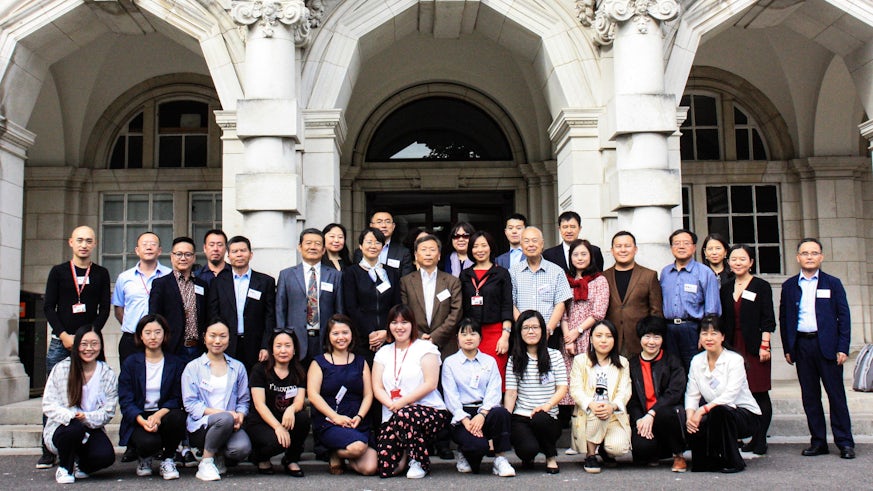School of Modern Languages plays host to Chinese celebratory symposium
14 August 2019

A celebration of Chinese language, culture and arts came to Cardiff this July in an event which aimed to enhance intercultural communication between the East and the West.
The 4th International Symposium Dialogue between Chinese Language Teaching and Culture and Arts took place across a variety of venues in the city on 10-11 July 2019.
The School of Modern Languages was an ideal host for the 4th symposium. It boasts a wealth of knowledge and expertise and is a growing centre for Chinese Studies. The symposium was the first event to be co-hosted by the Chinese Studies department at the School, their strategic partner Beijing Normal University (BNU) and the Cardiff Confucius Institute.
The event was also supported by the University of Leeds, and SOAS University of London who are core members of the British Chinese Language Teaching Society and the UK-China Association of Supervision on Research Students of Teaching Chinese to Speakers of Other Languages.
The event opened on 10 July with a range of presentations which were open to the public. The first keynote address was given by Vice Dean of BNU-Cardiff Joint Chinese college, Professor Lihui Yang, and was entitled The Images of Loong/Dragon in Chinese Myths: And a Discussion about the Way of Understanding in Cross-Cultural Communication. Other presentations included discussions on Chinese culture and the arts, the comparative study of Chinese and Western culture, transmission of culture through language, expansion of Chinese language teaching and promoting communication and interaction between cultures.
During the lunch break on day one of the symposium, Professor Qing Wang of BNU performed traditional Chinese calligraphy for around 45 delegates who hailed from the UK, China, France and the US. In the evening, delegates and members of the public were treated to a concert which included performances by high profiles artists such as First Tenor of the Chinese National Opera and Dance Drama Theatre, Mr Li Zhentao, multiple award winning, distinguished young pianist from the Royal Academy of Music, Mr Yuanfan Yang and Head of the School of Music, Professor Kenneth Hamilton.
The event continued on 11 July and saw researchers and teachers from the School of Modern Languages present their work to delegates. Topics included applied linguistics and language pedagogy, intercultural communication, translation studies, and media studies and it is hoped that a number will be published in due course following the event.
The School of Modern Languages added the BA in Modern Chinese to its suite of languages in 2016 meaning that it is a relatively new offering at Cardiff University. Uniquely, this programme offers students a dual degree from Cardiff University and Beijing Normal University on completion. Through our relationship with BNU, a Chinese college has been established in the UK with a global vision to teach Chinese language and culture and to further the understanding of current Chinese society, politics, culture, economics, education and law. In 2019 we introduced a second Chinese undergraduate programme, BA Chinese, which will be welcoming its first cohort of students this September.
Following the symposium, Xuan Wang, Programme Director of Chinese Studies said, “The School of Modern Languages and our partners at BNU and the Confucius Institute were thrilled to welcome such a multicultural delegation to Cardiff for our symposium. This was an important and ambitious event for our Chinese Studies department given that it is a very young discipline in Cardiff University delivered by a small team. We want to place Chinese Studies at Cardiff University on the map nationally and internationally and opportunities such as this allow us to establish and develop our relationships with major universities around the world. In a time of uncertainty due to Brexit, promotion of all languages is key and events like this help to promote this idea. I would like to take this opportunity to thank the University of Leeds, and SOAS University of London who supported the event and in particular Dr Lan Yang and Dr Lianyi Song who were key advisers.”